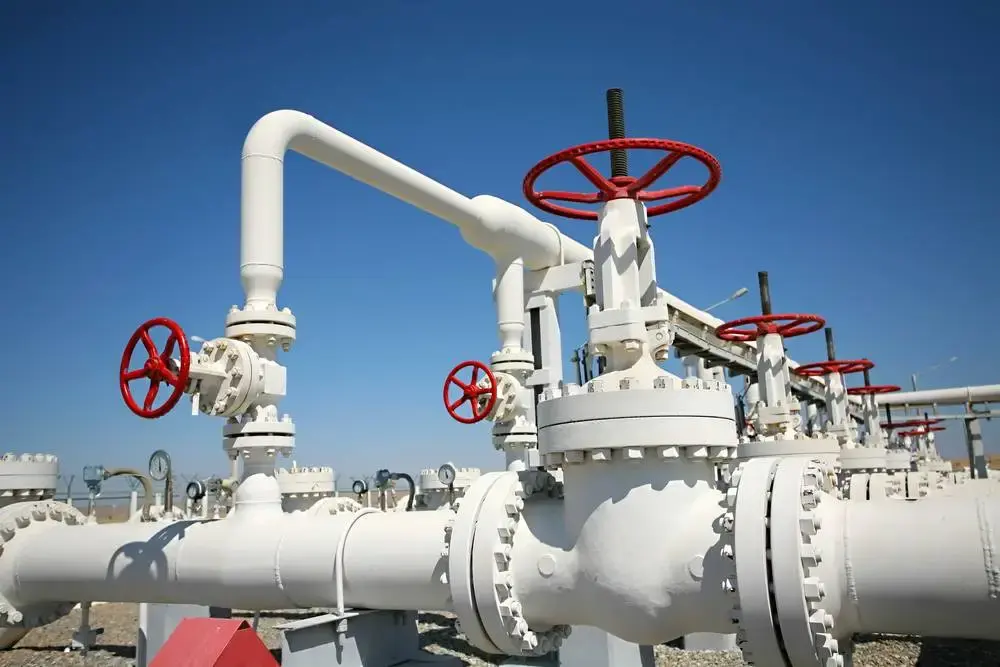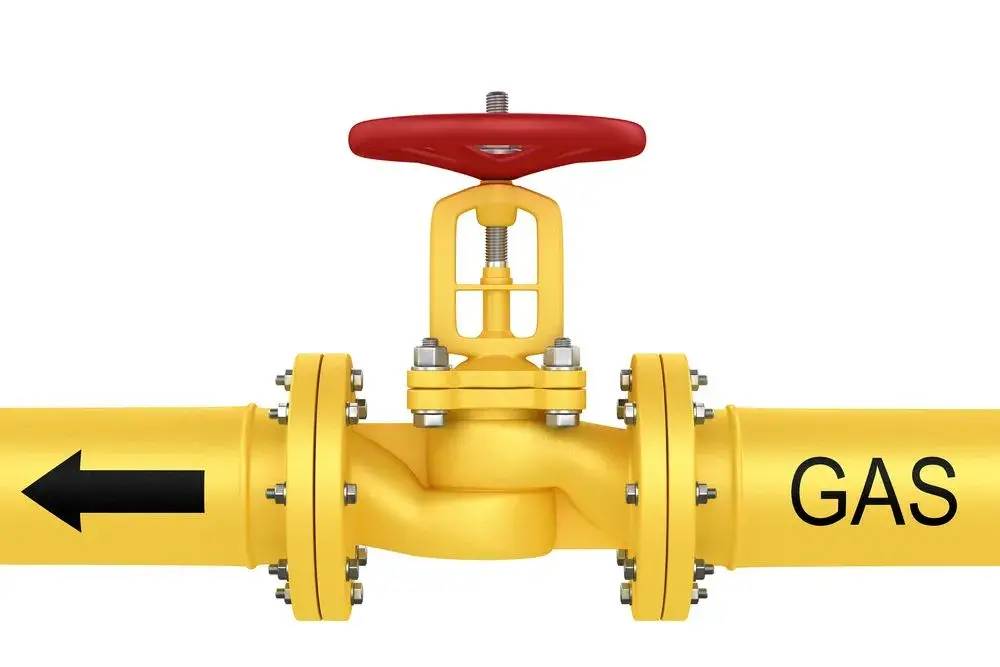We specialize in converting heating systems that rely on oil boilers to cleaner, cheaper, less harmful natural gas systems.
Our oil to gas boiler conversions are quick and reliable with a seamless switchover so you’ll never be without heat.
Oil to gas conversions will help you reduce your carbon footprint as we strive as a nation to become 100% decarbonized.

Natural gas is an efficient fuel for heating buildings, heating the water in buildings, for cooking, as well as for use with the full range of gas appliances. It is also cheaper than other types of fuel. More importantly, natural gas releases a lot less CO2than other fossil fuels – up to 50% less than coal and between 20% and 30% less than oil.
NY Engineers is licensed to do oil to gas boiler conversions and our experienced engineers are ready to provide more information about the conversion process.
We are one of the fastest growing MEP design firms in the construction industry. We pride ourselves on having a fast turnaround while providing cost effective solutions. We are licensed in 50 states and are your one stop shop for all MEP design needs.
We are licensed in all 50 states!
We design to the perfection
Enjoy our lightening fast turnaround
We have completed so far!
Our designs are approved by DOB in one go
The best service experience in the market
Natural gas is an efficient fuel for heating buildings, heating the water in buildings, for cooking, as well as for use with the full range of gas appliances. It is also cheaper than other types of fuel. More importantly, natural gas releases a lot less CO2than other fossil fuels – up to 50% less than coal and between 20% and 30% less than oil.
According to the U.S. Energy Information Administration (EIA), of all the fossil fuels, natural gas and natural gas plant liquids (NGPL) have the highest projected production growth for the outlook period, 2019-2050. Additionally, natural gas-fired electricity generation has increased in the past decade, with the use of less economic coal and nuclear plants decreasing substantially. In 2018, natural gas was used more than any other fuel source to generate electricity.
This in spite of the fact that in February 2018 the EIA forecast that “clean energy,” specifically wind and solar power, would dominate the market for “new power capacity.”
One significant result of this situation is that an increasing number of property owners are opting to convert from oil to natural gas for their energy needs, heating in particular.
While it is undoubtedly essential to eradicate, or at very least minimize the use of all fossil fuels because of their harmful emissions, the reality is that more than 80% of global energy needs are currently being met with fossil fuels.
Ironically, fossil fuels also remain the largest sources of energy for the generation of electricity. According to the EIA, in 2018:
Emissions-free renewable energy sources accounted for less than 20% of the electricity generated in the U.S. during 2018, with:
Another reality is that until there are viable options financially, people will continue to convert from oil to cheaper, less harmful gas.

Millions of Americans have embraced the decarbonized energy challenge – not just individuals but policymakers and utility companies too. The Governor of New York Andrew Cuomo has taken a particularly strong line, and he’s doing everything possible to achieve zero emissions by 2040, or even sooner. One controversial step he took early 2019 was to deny permits for three new gas pipelines and ban the hydraulic fracturing that would potentially produce new supplies of relatively cheap natural gas.
Cuomo’s decision resulted in a moratorium from Con Edison in Westchester, the utility company providing natural gas to customers in that part of New York State. But then, both Con Edison and National Grid, which supplies gas to other parts of New York City as well as Massachusetts and Rhode Island, have been warning that they weren’t going to be able to supply natural gas to new customers if new pipelines weren’t built.
It’s a major dilemma!
Dean Seavers, president of National Grid since December 2014 shares a clearer picture in The Democratization of Energy: Climate Change, Renewables and Advancing the American Dream published in January 2017.
Seavers believes that a very basic common-sense approach that is based on reality is what New York (and probably the rest of the world) needs. He sees the answer in “renewable energy, energy efficiency and demand reduction, increased natural gas supplies, and electric transmission to connect us to remote resources.”
In 2017, National Grid invested $100 million in Sunrun, the largest residential solar company in the U.S. But, at the same time, Seavers says the company will continue with oil to gas boiler conversions because this, in itself, decreases heating emissions for homes and businesses. This strategy has also been designed to ensure that significant emissions will be eliminated from the supply chain without causing economic disruption in local communities.
Most homes in the U.S. utilize furnaces or boilers for heating.
Steam boilers are inherently less efficient than hot water boilers because they operate at higher temperatures. However, there are high-efficiency boilers and furnaces that are available.
The primary fuels used historically for boilers were coal, oil, and gas. In all instances, the water in the boiler was heated by the fuel and distributed through the heating system.
Today, boilers are still designed to use fossil fuels, although biomass boiler systems that use alternative biofuels are also available. The fuels used for these range from bark and wood to chicken manure, sawdust shavings, and construction debris.
The annual fuel utilization efficiency (AFUE) provides a measure to enable consumers to compare the heat efficiency of furnaces and boilers. The higher the percentage, the more efficient the unit is.
According to the U.S. Department of Energy’s (DOE) Energy Saver resource:
Fuel oil is known to be a highly polluting heat source. Whether it is a residual fuel oil (#5 and #6) or a distillate fuel oil (#1, #2, #3, and #4) it is derived from petroleum. Distillate grades used in boilers include #2 and #4, and residual grades used for heating system boilers include #5 and #6, although #5 residual oil isn’t used for heating boilers in New York. Distillate grades are cleaner but more expensive than residual oil grades.
While some oil fuels are considerably cleaner than others, there is nothing clean about any of them. Ultimately, some fuel oils pollute our air more than other types, and some are more harmful to our health.
Even though natural gas is a fossil fuel, there is a strong case that continuing to switch from oil to natural gas will help drive momentum towards a decarbonized future. As National Grid’s Dean Seavers says, replacing dirtier oil with natural gas in the energy supply chain creates a backstop that allows the intermittent generation of renewable energy while the industry works on making large-scale energy storage technologies available.
NY Engineers advocates green design and technologies, and, like Seavers, we continue to promote reducing the global carbon footprint with oil to gas boiler conversions.
Apart from environmental issues, natural gas boilers in the U.S. cost less than half of what oil costs to fuel a boiler. Even though natural gas is more expensive in New York and the rest of the Northeast when compared to prices elsewhere in the U.S., it is still considerably cheaper than oil. When comparing the two fuel types in terms of cost per unit of heat, natural gas is 25% cheaper than fuel oil and 25% less expensive to run – presuming the two boilers have equal fuel efficiency. If an old, inefficient oil boiler is replaced with a modern, energy-efficient gas boiler the savings will be even higher.
Additionally, while heating oil has to be delivered in trucks to the point of use, utility companies like Con Edison and National Grid have natural gas distribution systems that are linked to individual buildings.
Oil-fired boilers also require more maintenance than systems that utilize natural gas.
Another incentive to opt for an oil to gas boiler conversion is the Con Edison rebate program that offers savings for homeowners, business customers, and even people who are renting homes.

While the benefits of natural gas boilers vs oil boilers are substantial, it isn’t always the best decision to make. You might not even be able to make the switch right now. Additionally, the still increasing demand for natural gas boilers has impacted on the infrastructure of many cities and states and not all can keep pace.
These are some of the questions you should consider while evaluating whether to convert from an oil-burning boiler to a gas boiler:
Nearby Engineers New York Engineers will undertake the full evaluation for you.
A licensed professional will estimate the costs involved to convert from an oil to a natural gas boiler. This estimate should include not only the costs involved in installing the new gas boiler but also how long it is likely to take to recoup these costs.
If it is feasible for you to opt for an oil to gas boiler conversion, you can have your licensed professional submit a gas service request to the local utility company.
The type of building concerned will obviously play a role both in terms of time the conversion will take, in terms of cost, and in terms of the timing relating to the removal of the current source of heating. For instance, if the owner of a building has tenants and removes the existing heat source before he is able to supply a new heat source, this could result in a fine from the municipality.
Generally, it is best to maintain the existing heat source until the new gas boiler and gas meter have been installed. But the old oil tank will have to be removed.
NY Engineers is licensed to do oil to gas boiler conversions and our experienced engineers are ready to provide more information about the conversion process.
382 NE 191st St , Suite 49674
Miami, Florida 33179276 5th Avenue, Suite 704 #904
New York, NY 10001